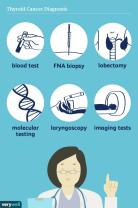What is a normal cerebellar test?
A normal cerebellar test refers to a medical examination or assessment of the cerebellum, a part of the brain that plays a crucial role in coordinating voluntary movements, balance, and posture. A normal cerebellar test indicates that there are no apparent abnormalities or issues with the cerebellum's function.
Here are some key aspects of a normal cerebellar test:
Coordination: One of the primary functions of the cerebellum is to coordinate movements. During a cerebellar test, a healthcare provider may assess various aspects of coordination, such as finger-to-nose testing (having the patient touch their nose with their finger) or heel-to-shin testing (running the heel of one foot down the shin of the opposite leg). In a normal test, these movements are executed smoothly and accurately.
Balance: The cerebellum is essential for maintaining balance and posture. A cerebellar test may include evaluating a person's ability to stand upright with their eyes open and closed, as well as assessing their ability to maintain balance while performing specific tasks.
Gait: The way a person walks can provide insights into cerebellar function. A healthcare provider may observe a patient's gait (walking pattern) to check for any irregularities or signs of imbalance.
Reflexes: The cerebellum also influences certain reflexes, such as the knee-jerk reflex. Abnormalities in reflexes may be indicative of cerebellar dysfunction.
Fine Motor Skills: Cerebellar tests may involve assessing fine motor skills, such as handwriting or finger tapping. Difficulty in performing these tasks accurately may suggest cerebellar issues.
It's important to note that a cerebellar test is typically conducted as part of a broader neurological examination. Healthcare providers use these tests to assess brain function, identify neurological conditions, or monitor the progression of certain diseases or injuries that can affect the cerebellum.
If abnormalities are detected during a cerebellar test, further diagnostic tests, imaging studies (such as MRI or CT scans), or consultations with specialists may be necessary to determine the underlying cause and develop an appropriate treatment plan. A normal cerebellar test is a positive outcome, indicating that the cerebellum is functioning as expected, contributing to smooth movements, balance, and coordination.













